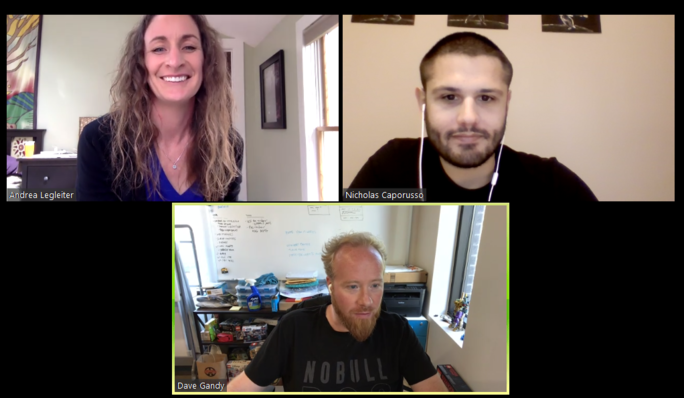Fort Hays State grad: No matter where I live, there’s no place like home for a quality education

By Diane Gasper-O’Brien
University Relations and Marketing
HAYS, Kan. – Andrea M. Legleiter looked for a long time and at a lot of options when considering a master’s program in Web development. No matter what state she wound up living in, the sense of belonging and familiarity kept drawing Legleiter back to Fort Hays State University and the city where she attended high school.
Now a two-time FHSU graduate, Legleiter would put her capstone research project up against graduates from universities well known for Web development.
Her project in the research methods class for her master’s degree, which focused on commonly used interface icons, will be published in an international conference this summer. Legleiter and her adjunct professor, Dr. Nicholas Caporusso, are working on follow-up research for the project, which features Font Awesome’s library.
Font Awesome is a font and icon toolkit used by website designers and developers instead of traditional, old-image icons. Its icon set is known as one of the most popular professionally designed open-source sets available.
Fueled by the success of her final project, Legleiter – a 1999 graduate of Hays High School – completed her master’s program online while always on the move. She lived in three different states along the East Coast in a single year with her significant other, Shawn, and their son, Rhys.
A 2003 Fort Hays State graduate with a Bachelor of Arts in communication, Legleiter recorded a perfect 4.0 GPA while earning earned her Master of Professional Studies with an emphasis in Web and mobile application development. This spring, she won the Dr. Bob Meier Outstanding Graduate Research Award at FHSU, which recognizes student excellence for their thoughtfulness, hard work and determination throughout their research projects and time at FHSU.
A culminating point of the research project for Legleiter was a Zoom meeting with Font Awesome’s CEO, Dave Gandy, who was impressed with Legleiter’s research and data collection tool and promoted it on Font Awesome’s social media accounts.
While Font Awesome is a small company in terms of employees, it is used by millions of websites, Dr. Caporusso said.
Legleiter and Dr. Caporusso will continue gathering data for the project and perform more in-depth analysis to help the company improve on how the icons are designed and perceived by users of different ages and education levels.
While Dr. Caporusso collaborates on projects like Legleiter’s, he gave her all the credit for the success of the Font Awesome project.
“It was her idea, and I just helped her refine it and take to the next level,” Caporusso said. “She showed a lot of perseverance and made it happen.”
Legleiter came up with her research idea when she was conducting some usability tests in another class early on in her master’s program. She was evaluating a website that incorporated a lot of icons in the user interface, and she began to wonder to what extent the common user understands the meaning behind the icons that facilitate interactions.
“It was a fun project,” she said. “Dr. Caporusso saw that I had ideas and the willingness to go a step beyond.”
Legleiter’s project focused on discovering to what extent icons have acquired universal meaning and determining the level of ambiguity of each icon, which can degrade their usability.
She is excited about continuing work on the project and is thankful that she chose her alma mater to pursue another degree.
“This program taught me the skills that were necessary as I look to transition to a career in Web and mobile application development,” Legleiter said. “It combined practical application of various coding languages and a theoretical research component that was missing with other programs I was looking at. The program provided a high level of education and a rewarding experience all around.”